FoodChain ID GMO Testing services are dedicated to enhancing consumer awareness and ensuring the integrity of food products. We provide precise and reliable testing solutions that ensure the quality and safety of your food products, facilitating informed decision-making throughout the supply chain.
Genetic Analysis employs molecular techniques to detect foreign DNA integrated into a plant's genome. This advanced method for detecting genetically modified organisms primarily utilizes Polymerase Chain Reaction (PCR), a cornerstone technology in genetic engineering, to identify and verify genetically modified organisms (GMOs). Focusing on the genetic level ensures the detection of genetically modified organisms, even in complex samples.
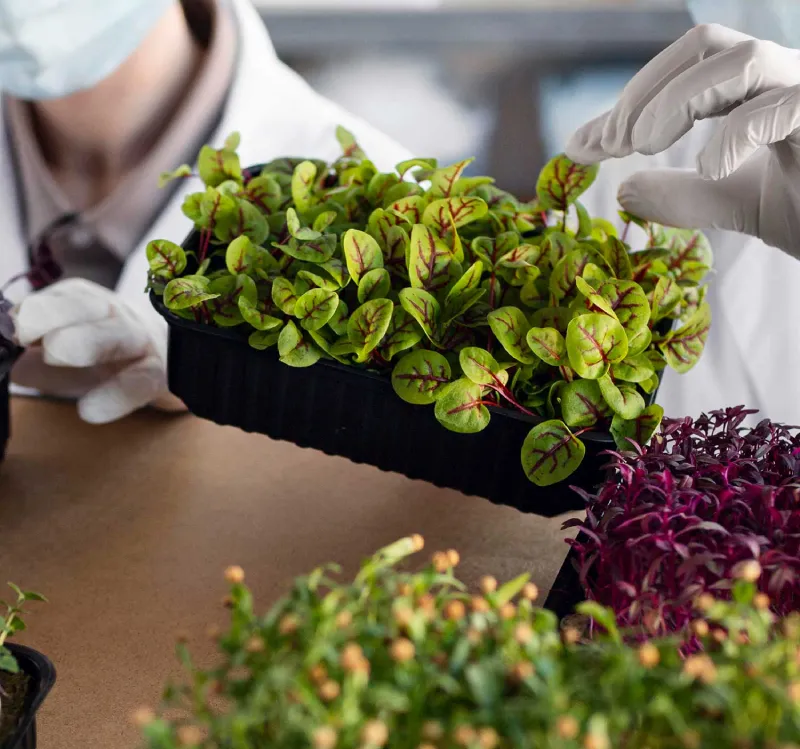
PCR is a refined technique that significantly increases the amount of a specific DNA segment in a sample, enabling easier detection and quantification. The procedure starts with extracting DNA, which is then subjected to thermal cycling. This involves alternating heating and cooling to extensively replicate the targeted DNA segment, enhancing its detectability, even in minute quantities. Primers—short DNA sequences tailored to bind specifically to the GMO sequence—are used to ensure that the replication is precise, resulting in highly dependable outcomes. Employing a pair of genetically engineered primers further sharpens this accuracy, making PCR analysis an essential tool in our GMO detection arsenal.
Our GMO Testing services utilize Genetic Analysis to provide accurate and reliable results, ensuring compliance with global regulatory standards and maintaining consumer trust in food safety. The effectiveness of our services is grounded in the PCR process, which includes both qualitative and quantitative methods. We continually enhance our testing capabilities through innovations in screening, detection, and specific GMO test methods, all tailored to support precise GMO labeling and rigorous safety testing.
Beyond the well-established PCR methods, various emerging and less commonly used for detection GMO testing techniques offer potential alternatives and complements to traditional approaches. These innovative methods expand the toolkit available to scientists and regulators, providing new avenues for ensuring the accuracy and integrity of food testing.
The Enzyme-Linked Immunosorbent Assay (ELISA) is a highly sensitive antibody-based technique to detect specific proteins associated with GMOs. This method employs antibodies immobilized on a solid surface to capture target GMO proteins from a sample. Subsequently, a secondary antibody linked to an enzyme binds to these proteins. Adding a substrate triggers a reaction that produces a measurable signal proportional to the quantity of GMO protein present. ELISA's sensitivity, with detection limits ranging from 0.01% to 1%, makes it ideal for analyzing raw agricultural commodities. However, its effectiveness is limited to samples with intact proteins and requires a controlled laboratory setting to yield accurate results.
Please note that FoodChain ID does not directly provide this testing service. For more information on ELISA and to explore other GMO testing options that might meet your needs, please contact FoodChain ID.
Strip tests, or lateral flow devices, are rapid, user-friendly immunoassays designed for on-site GMO detection. These tests involve a strip that carries antibodies specific to GMO proteins. When a sample is applied, it flows through the strip, and if GMO proteins are present, they bind to the antibodies, forming a visible line that indicates a positive result. Strip tests are excellent for preliminary screenings at harvest or processing sites due to their simplicity and speed. However, they generally offer lower sensitivity (0.1% to 1% detection limit) compared to PCR and are unsuitable for processed products where proteins may be degraded.
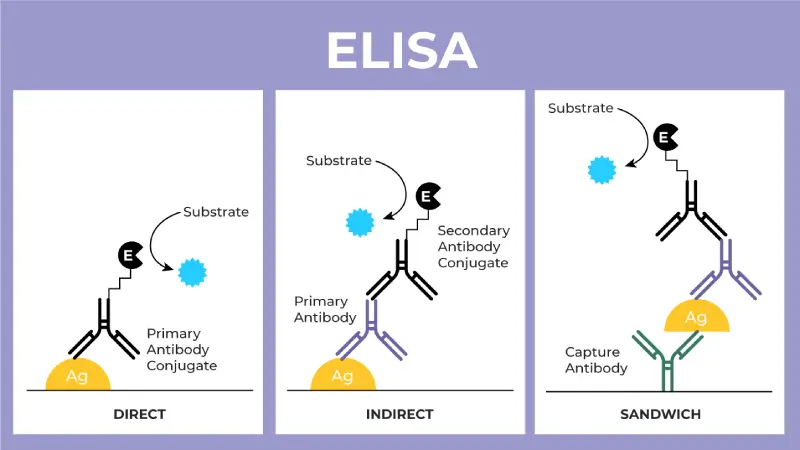
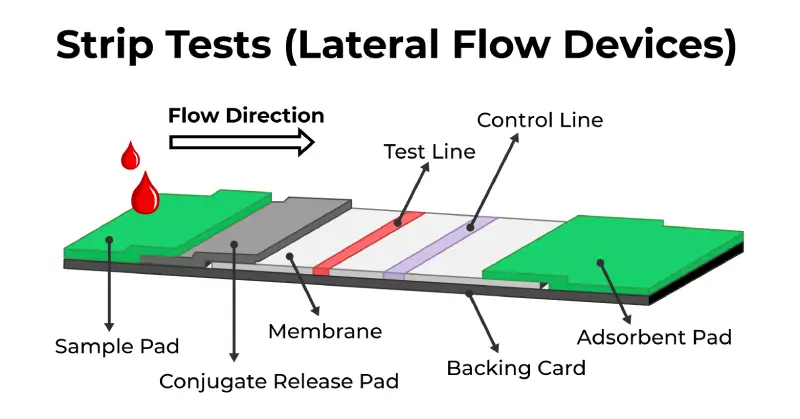
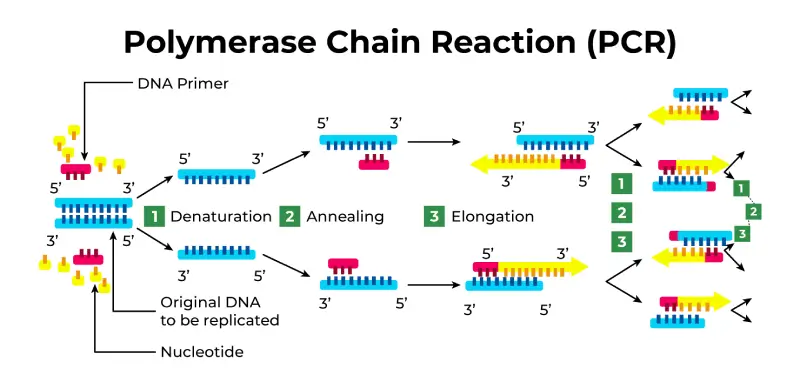
These methods each play a vital role in the GMO testing toolkit, offering complementary strengths that cater to different testing needs and scenarios. This diverse array of options ensures comprehensive coverage across the spectrum of GMO testing requirements, including a special focus on food and feed events and events using specific approaches.
Our GMO testing services are distinguished by our ISO 17025 accreditation, highlighting our dedication to precision and quality. We employ cutting-edge technologies such as Real-Time PCR to ensure swift, accurate, and precise results that comply with strict regulatory standards. Additionally, we assist you in understanding GMO regulations and choosing the most appropriate testing options for your requirements.
Choose FoodChain ID for a reliable partner that values speed, accuracy, and customer satisfaction in every test conducted. Choose FoodChain ID as your trusted partner, dedicated to delivering speedy, accurate results and ensuring customer satisfaction with each test. Our GMO testing labs perform thorough screenings to detect GMOs in food products, a vital process for upholding the integrity of food production and ensuring it meets safety and compliance standards.
Our rigorous GMO analysis and comprehensive GMO approach involve evaluating multiple GMOs. Different GMO types are frequently used in modern agriculture. By testing GMOs in a sample and analyzing food, we can ascertain the number of GMOs and identify possible GMO events in a sample.
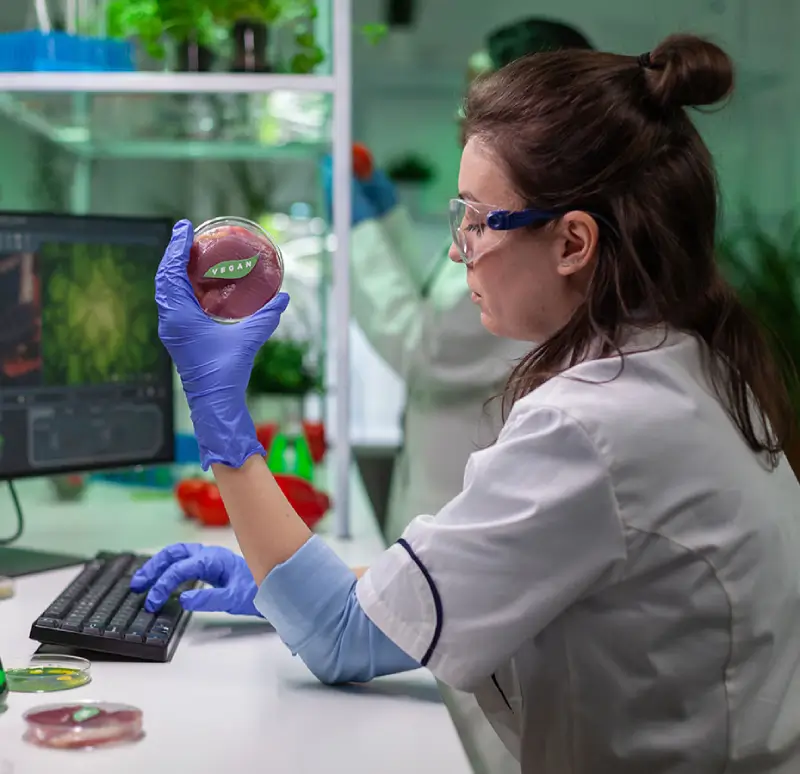
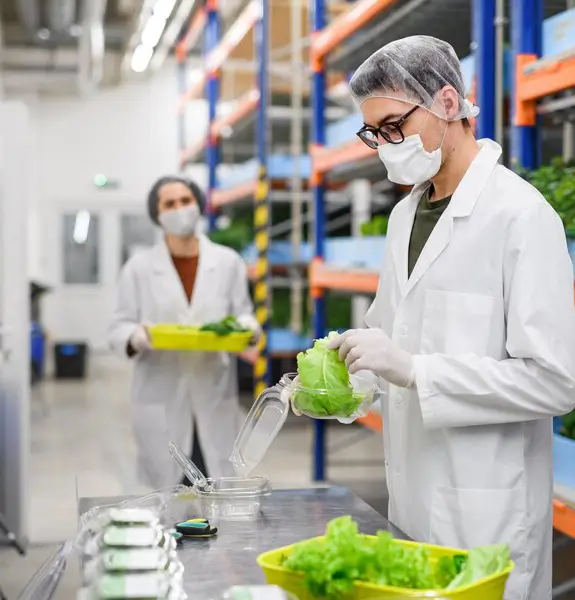
To Ensure the Safety and Compliance of Your Products With Trusted GMO Testing!
© 2024 FoodChain ID | Privacy Policy | Terms Of Use | Internet Marketing by Authority Solutions®